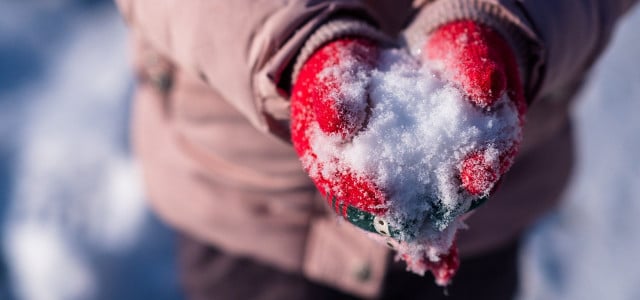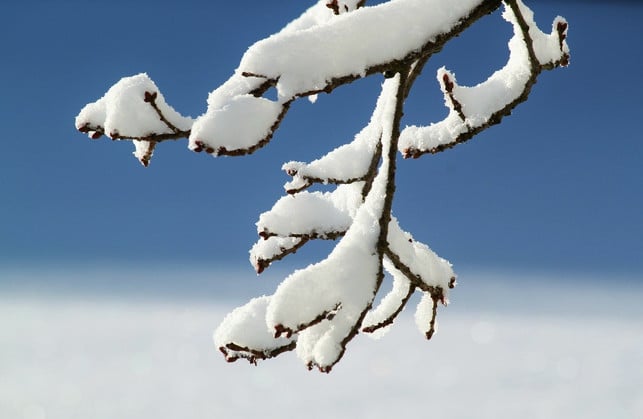
Fresh snow looks tempting – but can you snack on it? You can find out here whether it is safe to eat snow or whether it poses health risks.
Most people probably know that eating heavily contaminated snow is not a particularly good idea. At the same time, you often hear that freshly fallen, white snow is safe to eat. This has now been scientifically refuted. There is serious evidence that even fresh snow often contains pathogens and other harmful substances.
Eating snow: This is why it’s not a good idea
Fresh snow can also pose health risks for children and adults if consumed. Because when it falls from the sky, snow absorbs pollutants from the air, according to Öko-Test. Especially when there is a lot of fine dust circulating in the air, there is a high risk that a particularly large number of pollutants will be found in the snow.
A study from 2018 that was carried out in Northern Ireland shows that even freshly fallen snow can contain harmful bacteria. The scientists found a variety of bacterial strains in the snow – including many bacteria that can cause infections in humans. Eating snow can be particularly dangerous for people with weakened immune systems, such as children or older people.
The Federal Environment Agency also advises Öko-Test against consuming snow or rainwater. It is not guaranteed that both substances are germ-free. Instead, the risk is high that the snow is contaminated with “combustion products, dust or microbial aerosols”.
Microplastics, road salt and animal feces

(Photo: CC0 / Pixabay / cocoparisienne)
Another reason why you shouldn’t eat snow is microplastics. A 2019 study by the Alfred Wegener Institute came to the conclusion that snow contains microplastics even in remote places in the Arctic or in the Alps. The exact proportions of microplastics vary depending on the region. It is still unclear how microplastics affect our bodies. However, researchers fear that microplastics could accumulate in the body and influence the functioning of organs and immune cells.
Road salt can also be found in the snow and is not always visible at first glance. If people consume road salt, it can cause vomiting and diarrhea, according to Öko-Test. Snow can also be contaminated with animal feces and other excretions.
Furthermore, the body can cool down more quickly if you consume larger amounts of snow. The risk is even higher for children who are significantly lower in weight. In addition, snow does not contain any electrolytes or minerals, according to Öko-Test. In higher doses it can even deprive the body of minerals and electrolytes.
Conclusion: You should avoid eating snow
So, based on the reasons listed, eating snow is generally not a good idea. Nevertheless, you don’t have to worry if your child puts the white glove in his mouth or a few snowflakes end up in your own mouth. In small quantities, eating snow is generally not a cause for concern, the Federal Environment Agency told Öko-Test. However, snow is in no way a source of drinking water.
Read more on Techzle\.com:
- Barefoot in the snow: 3 reasons why you should try it out
- What exactly is snow?
- Quiz: Can you debunk these misconceptions about snow?
** marked with ** or orange underlined Links to sources of supply are partly partner links: If you buy here, you are actively supporting Techzle\.com, because we then receive a small part of the sales proceeds. More info.